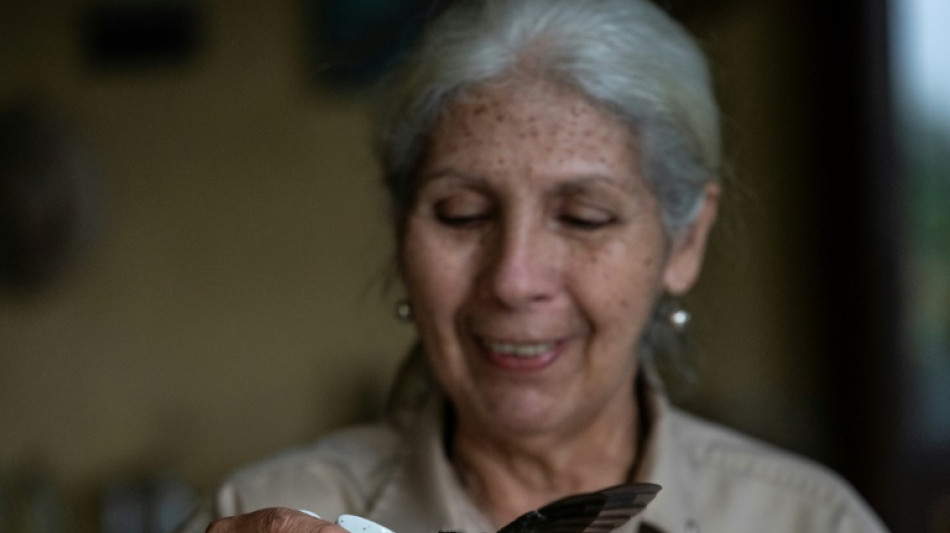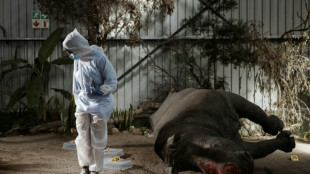

Birdwatchers' hearts flutter for Global Big Day
With excitement in their voices, six birdwatchers raise binoculars and scan the treetops in a private sanctuary not far from Venezuela's capital Caracas.
Look, one says, there's a blue-gray tanager. Another spots a warbler.
At the break of dawn, the birdwatchers left Caracas to take part in Global Big Day, an annual worldwide celebration in which birders observe as many species as they can in a 24-hour period.
Leading the group was Rosaelena Albornoz, a 61-year-old bird guide who has studied birds in Venezuela for nearly three decades.
Emotions were high as the group arrived at Amaranta Hummingbird House, a private sanctuary in San Jose de los Altos in the state of Miranda where some 170 species of birds have been spotted.
"Birds are an indicator of the health of an ecosystem," Albornoz tells AFP as she tallies the species they spot to upload on Ebird (https://ebird.org/), the platform to register bird sightings worldwide.
"With Global Big Day... the public comes out to have fun with the birds by counting them," says Albornoz, who left a job as an executive to study birds.
Hummingbirds fly over flowers and feeders set up by retired physician Cecilia Martinez, owner of Amaranta Hummingbird House.
A large hummingbird known as a brown violetear (Colibri delphinae) flies to Martinez to sip from a cup containing sugar water.
"Where have you been? Did you forget all about me?" she coos to the bird.
The fluttering hummingbird returns time and again to sip from the cup, as if she were a longtime friend of Martinez.
"Hummingbirds are capable of recognizing one," says Martinez, 73, a pathologist who retired in 2012 and now spends her time preserving the cloud forest tract near her home.
- 'Light pollution' -
Serenity envelops this mountain reserve -- except for the squawking of the Rufous-vented Chachalaca, a ground-dwelling bird with a squeaky shrill call.
Yet Martinez and other keen birdwatchers worry. They say human encroachment and light pollution are affecting birds and the insects they need for nourishment.
"The idea would be to study light pollution and the grave effect it has had on the loss of insects," says Albornoz. "If white light does in the insects, it will diminish the number of pollinators and birds."
She says the impact on birds and insects might be akin to how disrupted a human would feel if he or she had to sleep each night with a bright light on nearby.
M.Allan--RTC



